Employment growth last month came in at a whopping 60,000 jobs, tripling expectations, and most of those net new jobs were for full-time workers. As our population grows, more people are available to fill job vacancies. Employment rose in wholesale and retail trade (+33,000), manufacturing (+27,000), health care and social assistance (+21,000) and transportation and warehousing (+10,000). Meanwhile, declines were recorded in construction (-14,000), educational services (-14,000) and agriculture (-6,000).
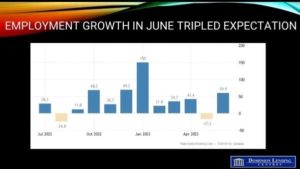
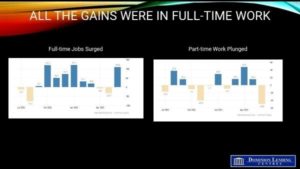
The unemployment rate rose 0.2 percentage points to 5.4% in June, following a similar increase (+0.2 percentage points) in May. The increase brought the rate to its highest level since February 2022 (when it was also 5.4%). There were 1.1 million people unemployed in June, an increase of 54,000 (+4.9%) in the month.
The population grew by 0.3%, the labour force rose by 0.5%, and employment increased by 0.3%. The participation rate increased by 0.2 percentage points to 65.7%.
Despite the successive increases in May and June, the unemployment rate in Canada remained below its pre-COVID-19 pandemic average of 5.7% recorded in the 12 months to February 2020.
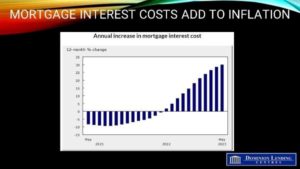
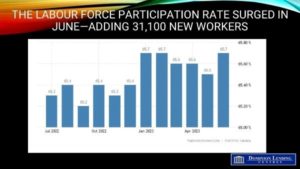
One thing the Bank of Canada will be happy about is that wage inflation slowed to 4.2% on a year-over-year basis following four consecutive months of more than 5% wage growth. This is good news for the Bank, but not good enough given that wages are still rising at more than double the inflation target of 2.0%.
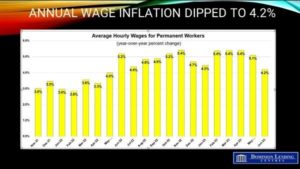
Bottom Line
Traders are now betting that there is a 70% chance that the Bank of Canada will hike the policy rate by 25 basis points on July 12, taking the overnight rate to 5.0%. Given that many consumers are feeling the pinch of rising prices, and the June housing data appears to have softened, at least in the GTA, the Bank could surprise us again by remaining on the sidelines. After all, inflation fell to 3.4% in May, and the Business Outlook Survey softened broadly, particularly regarding hiring intentions.
In contrast, the latest monthly GDP report showed an uptick in growth in May. Remembering that Q1 growth came in nearly one percentage point above the Bank’s forecast in the April Monetary Policy Report (MPR) and all six Canadian bank economists are forecasting a rate hike, the Bank might want to take out a bit more insurance that inflation will return to the 2% target next year.
A fresh MPR will accompany next week’s policy announcement and press conference. It’s unclear which way the Bank will go, but the odds favour a rate hike
